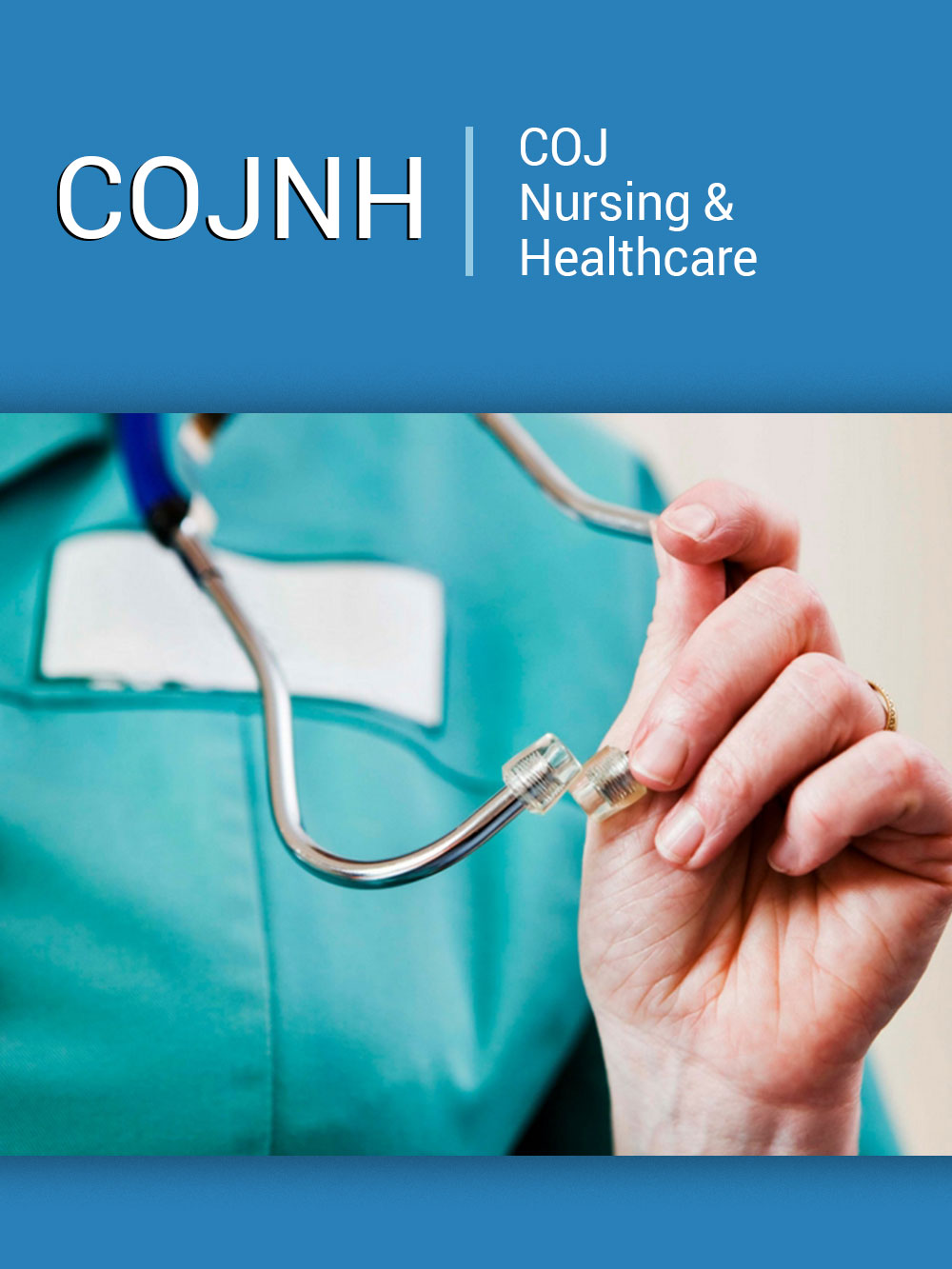- Submissions

Abstract
COJ Nursing & Healthcare
“Perception” as a Factor Influencing Self-Medication Among Healthcare Professionals in a Tertiary Hospital in South-South Nigeria
-
Open or CloseObodo Precious Morris, Owonari A Peter*, Suleiman Ismail Ayinla, Obodo Daniel Ugochukwu, Olodiama Providencia Ukwu and Timipre Okeroghene Aghogho
Department of Clinical Pharmacy and Pharmacy Practice, Faculty of Pharmacy, Niger Delta University, Wilberforce Island, Bayelsa State, Nigeria
*Corresponding author:Owonari A Peter, Department of Clinical Pharmacy and Pharmacy Practice, Faculty of Pharmacy, Niger Delta University, Nigeria
Submission: April 10, 2025;Published: June 02, 2025

ISSN: 2577-2007Volume9 Issue 3
Abstract
Self-medication is a widespread practice among healthcare professionals due to their accessibility to medications and medical knowledge. In as much as it is considered a time-saving measure, perception and attitudes toward self-medication play a significant role in shaping this behaviour. Understanding these perspectives is crucial in addressing the risks associated with irrational drug use. This study aimed to assess the perceptions, attitudes, and factors influencing self-medication among healthcare professionals in a tertiary hospital in South-South Nigeria. A cross-sectional study was conducted among 285 healthcare professionals, including medical doctors, pharmacists, and nurses at a tertiary facility in Bayelsa State. Data on self-medication attitudes, perceived risks and benefits, and influencing factors were collected using a structured questionnaire. Statistical analysis was conducted to identify associations between perception and the practice of self-medication. The result revealed that 65.3% of respondents had a poor perception of self-medication, while 34.7% of respondents had a good perception of self-medication. Healthcare professionals cited familiarity with treatment options (56.8%), quick relief (53.7%), and a need to save time (40.1%) as primary reasons for self-medication. Two hundred and eighty-one participants (98.6%) believe that self-medication is a common habit among healthcare professionals, while 52.2% believe that the awareness of risk associated with self-medication among healthcare professionals is adequate. The study also revealed that healthcare professionals with a poor perception of self-medication are two times more likely to self-medicate (aOR=2.90; p-0.002) than those with a good perception of self-medication. While many healthcare professionals perceive self-medication as an acceptable practice, concerns about antibiotic resistance and adverse Drug reactions remain. Awareness programs and hospital policies should emphasize the risks of self-medication and promote responsible drug use among healthcare workers.
Keywords:Self-medication; Perception; Healthcare professionals; Influencing factors
 a Creative Commons Attribution 4.0 International License. Based on a work at www.crimsonpublishers.com.
Best viewed in
a Creative Commons Attribution 4.0 International License. Based on a work at www.crimsonpublishers.com.
Best viewed in 







.jpg)






























 Editorial Board Registrations
Editorial Board Registrations Submit your Article
Submit your Article Refer a Friend
Refer a Friend Advertise With Us
Advertise With Us
.jpg)






.jpg)














.bmp)
.jpg)
.png)
.jpg)










.jpg)






.png)

.png)



.png)






